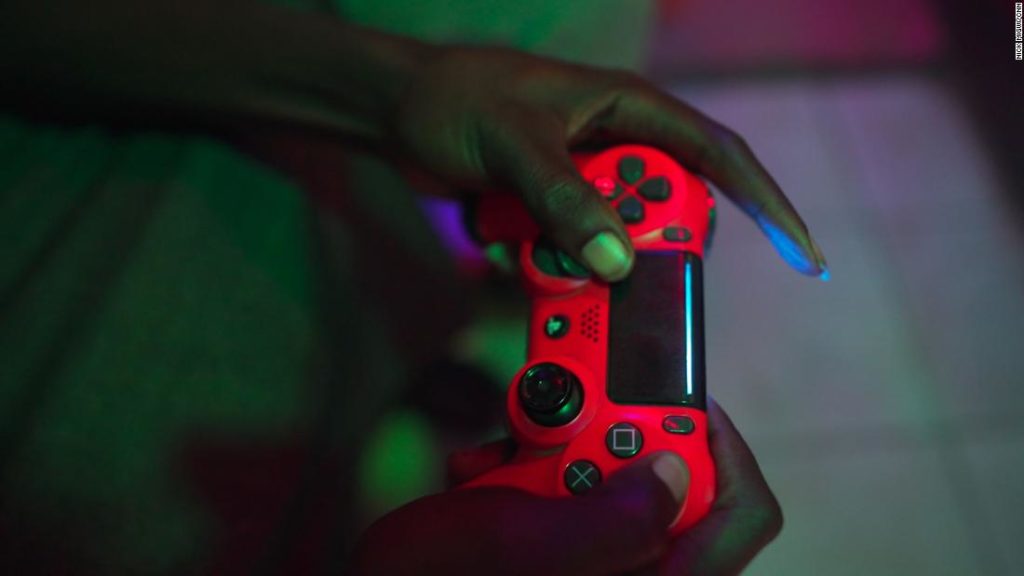But some of the continent’s most promising stars are in East Africa. Meet two Kenyan gamers who are looking to help put African esports on the global map.
Sylvia “Queen Arrow” Gathoni, 22
“We don’t have many women, so you don’t have a support system from people who share the same gender,” Gathoni says. “I have to make sure that I’m an example to other women, and other people who aspire to be in the gaming industry.”
“There’s some men who do not like the idea that I’ve made it as far as I have,” Gathoni says. “They say that the only reason that I’ve gotten signed is because I’m a woman and it’s not because of my hard work and my skill.”
While she admits those comments are hurtful, Gathoni says she is determined not to let them get in the way of her plans, which include using her law degree to help shape the future of the industry itself.
“I hope to at least create some of the laws that are going to be used as the foundation for the gaming community,” she says, “and also create laws that regulate micro-transactions,” which are small in-game purchases of virtual items.
Gathoni also hopes to use her platform to prove that esports is a viable career path.
“Right now, for a lot of people, it seems like we are just wasting our time, resources and energy,” she says, adding that pressure remains to pursue a more “conventional career path … like law or medicine.”
“I really hope that will change in East Africa, and here in Kenya.”
Brian “Beast” Diang’a, 28
His journey into esports began as a kid, spending all of his spare time in a Kibera gaming den called “After Homework,” where he says he would go to escape his reality.
“We would go without food for days, (and) no water,” Diang’a says of his life outside gaming. “The whole of high school I was wearing one pair of shoes.”
But through gaming, he found purpose. “The good thing about Kibera is you are low and you can’t go any lower than where it is,” he says. “The only place left for you to go is to go higher. So I just kept pushing myself and telling myself I don’t have limits.”
Unable to afford a console of his own, he honed his skills by watching YouTube tutorials and studying other players online. In 2014, he began entering local tournaments, where his professional career and infamous gaming handle “Beast” took off.
Since then, he has played a significant part in growing the local industry and developing esports in Kibera, where he still lives, and runs gaming dens for kids from the community.
But Diang’a takes it all in stride as he continues to work towards ensuring that Kenya in particular and Africa as a whole become global forces in this online arena.
“The reason I’m in this space is I want to improve or help improve on what has already been done by the ones before me,” he says. “And I feel it’s my duty to make it better for those who are coming after me.”
You may also like
-
UK coronavirus variant has been reported in 86 countries, WHO says
-
NASA technology can help save whale sharks says Australian marine biologist and ECOCEAN founder, Brad Norman
-
California Twentynine Palms: Explosives are missing from the nation’s largest Marine Corps base and an investigation is underway
-
Trump unhappy with his impeachment attorney’s performance, sources say
-
Lunar New Year 2021: Ushering in the Year of the Ox

